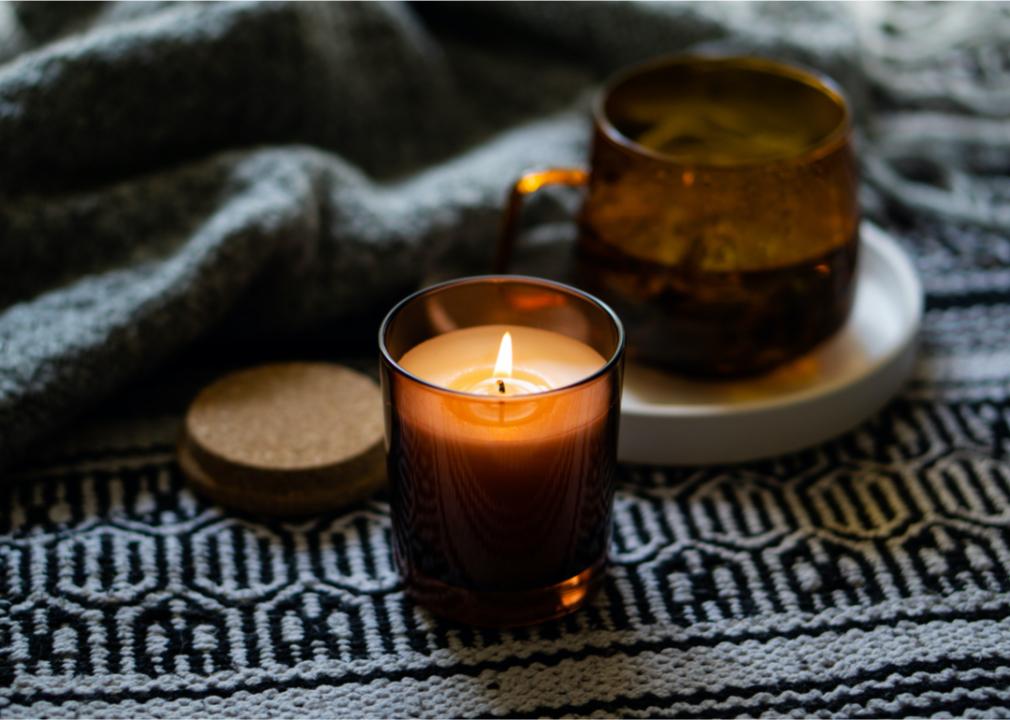Hygge and 7 other global wellness terms

Alena Ozerova // Shutterstock
Hygge and 7 other global wellness terms
The idea that a word is untranslatable is a bit of a misnomer. There are, however, many words in other languages that encompass a meaning that takes several words in English to convey. Because of differing cultural contexts, it is sometimes difficult to capture the nuance or exact meaning of words through translation, which is a big reason why the English language has adopted so many words from other languages without translating them. Words like klutz, wanderlust, avant-garde, and emoji have become ubiquitous in English despite originating in Yiddish, German, French, and Japanese, respectively.
Many words in other languages are imbued with cultural specificity, yet aspects of their meaning are universal, resonating with people all over the world by identifying some small but relatable part of the human experience. Translators can endlessly debate the meaning of words from one language to another, but in general, people don’t think about how these words are translated. In most cases, there are good reasons for why the words and phrases were chosen.
Sunday Citizen consulted international dictionaries and cross-cultural websites to identify words in other languages related to wellness that don’t directly translate to English.
![]()

Alena Ozerova // Shutterstock
Hygge (Danish)
– Meaning: Feeling of coziness from simple comforts
Hygge (pronounced hoo-gah) is a critical aspect of Danish culture, especially during the long winter months when the sun sets in the early afternoon. Despite the darkness and cold, which makes spending a lot of time indoors a necessity, Denmark is regularly ranked among the top contenders for happiest nations.
The word hygge is thought to be derived from the 16th-century Norwegian word “hugga,” meaning “to comfort or console.” It also reflects Danish cultural values like egalitarianism, a shared sense of well-being, and consensus. While hygge is described by Danes as an unbuyable feeling of comfort created by communing with loved ones in a cozy environment, the somewhat recent explosion of hygge-themed marketing in other parts of the world for items like candles, slippers, and oversized sweaters has been criticized for reducing the meaningful and complex cultural value to a trendy aesthetic or commodity.

Rawpixel.com // Shutterstock
Ubuntu (Zulu)
– Meaning: I am because we are
Ubuntu (pronounced oo-boon-too) derives from the Zulu phrase “umuntu ngumuntu ngabantu,” which means that “a person is a person through other people.” Emphasizing the importance of community, common humanity, and compassion, ubuntu is a shared concept among the Bantu languages, particularly in the southern African nations of Zimbabwe and South Africa. The philosophy of ubuntu became increasingly popular starting in the 1990s as the system of apartheid was dismantled and a new, more egalitarian vision for society began to take shape.
Both Nelson Mandela and Archbishop Desmond Tutu were proponents of ubuntu as a way of thinking and resolving conflict that could allow South Africa to move forward collectively after the atrocities and political upheaval of apartheid. Tutu, who chaired the post-apartheid Truth and Reconciliation Commission, credited ubuntu as being instrumental to the process of accountability and forgiveness.

Daria Minaeva // Shutterstock
Ikigai (Japanese)
– Meaning: Reason for being
Ikigai is composed of two words: “iki,” or “life;” and “gai,” which means “value or worth.” Akin to the idea of a raison d’être, ikigai refers to something that makes life meaningful or which motivates one to continue on in life. While ikigai can be related to one’s work, it often doesn’t correlate to a day job.
According to Japanese psychiatrist Mieko Kamiya’s authoritative 1966 book on ikigai, “Ikigai-ni-tsuite,” the word does not quite connote happiness, but rather a feeling that allows one to look forward to the future even if the present is unfulfilling. Ikigai does not necessarily need to mean something grandiose, however. It refers instead to the smaller happinesses that accumulate to make a life meaningful.

polinaloves // Shutterstock
Mерак (Serbian)
– Meaning: Pleasure that comes from everyday joys
In Bosnia, “merak” is enjoying wiling away the day while drinking a cup of coffee or chatting with friends. In Greece, “meraki” means putting something you love into what you’re doing, whether it be making a meal or decorating a room. And in Serbia, “mерак” refers to the feeling of oneness and peace that accompanies simple, mundane joys. Mерак is not something that can be bought, but must be experienced, whether it be through eating a meal with friends, lingering over a drink, or enjoying music.

Alena Ozerova // Shutterstock
Waldeinsamkeit (German)
– Meaning: Feeling of being alone in the woods
Waldeinsamkeit (pronounced veid-ein-zahm-kite) literally translates to “forest loneliness,” and has been an integral part of German culture for centuries. Waldeinsamkeit comes from a long tradition of roaming German forests alone to experience the feeling of enlightenment and inspiration that comes from communing with nature.
In Germany, walking through the forest has historically been treated as a way to maintain wellness and alleviate stress, with some officials even making it a part of public health policy. Today, some German health insurers pay for it as a form of therapy for stressed-out workers. Germans are far from the only ones who seek waldeinsamkeit and its health benefits, however. The Japanese practice of shinrin-yoku, or “forest bathing,” similarly recognizes the benefits of taking in the forest atmosphere for the body and mind.

Alena Ozerova // Shutterstock
Fjaka (Croatian)
– Meaning: Delight of doing nothing
Often incorrectly confused for laziness, fjaka (pronounced fyackah) is a state of being in which the mind and body slow down, and one wants for nothing. It is described as a state of rest and lingering, often in response to the intense heat of Croatian summers.
Other Mediterranean cultures have a similar tradition—such as the Spanish siesta or Italian “pisolino.” However, fjaka does not necessarily entail taking an afternoon nap. It is more likely sitting at a cafe drinking the same tiny cup of espresso for an hour or two, without noticing the time passing. Fjaka is supposedly a sublime state that cannot be learned, but it can be caught.

fizkes // Shutterstock
Tsavt tanem (Armenian)
– Meaning: Let me take your pain
The idiomatic Armenian phrase tsavt tanem has various meanings and applications, depending on the context of the conversation or the relationship between the speaker and recipient of the phrase. In its most literal sense, tsavt tanem, or “let me take your pain,” can be said as a way of conveying compassion or sympathy for someone’s difficult situation. But it can also be expressed as a way of gently mocking someone’s flaws or embarrassments, or as a more general phrase of endearment that connotes intimacy between the two parties.
Often, tsavt tanem is said by parents to their children or between other family members. Whatever the context, the phrase is intended to convey tenderness and empathy.

GaudiLab // Shutterstock
Sisu (Finnish)
– Meaning: Willpower and resilience
The word sisu (pronounced see-soo) is derived from “sisus,” which means “guts or intestines” in Finnish. Centuries ago, guts were thought to be where strong emotions came from in the body. The word came to be held up as a core trait of Finnish people after Finland gained its independence from Russia in 1917.
Emilia Lahti, a Finnish researcher who studies the phenomenon of sisu, calls it embodied fortitude. Sisu is the hidden inner strength only accessed in times of adversity, when one is at the end of emotional and physical rope, but presses on anyway. Lahti points out that sisu is not so much something that can be consciously willed into existence, but is instead connected to a more visceral and experiential need to endure, which pushes the mind and body to continue.
This story originally appeared on Sunday Citizen
and was produced and distributed in partnership with Stacker Studio.
